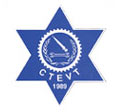
Diploma In Electronics Engineering
Affiliated to: Council for Technical Education and Vocational Training (CTEVT)About Course
- Course Title : Diploma In Electronics Engineering
- Category/Level : Diploma
- Course Duration (months) : 36 months
- Cost Range (NPR) : NA
- Affiliated to : Council For Technical Education And Vocational Training (CTEVT)
Course Description:
INTRODUCTION
Last three decades have witnessed phenomenal growth in electronics and communication, from lines to microwave and broadband communication. The growth is expected to be still more vigorous, involving higher levels of sophistication, technology and skills in the days to come. This has created avenues for specialized manpower who could be engaged in design, development, operation and maintenance of electronic circuits and devices for diverse communication needs.
After completion of this cource a student will gain knowledge in basic electronics field and will be able to repair television,radio nad telecommunication euuipment, electrical equipment like transformer,solar energy system and computer.Employment avenues exist in radio,television,telecommunication and airlines in both public and private sectors. Self employment opportunities aer also rapidly increasing in this field.
OBJECTIVE
- Creatively use their background in basic sciences and mathematics in solving engineering problems.
- Communicate effectively and to act with social and professional responsibility in their encounter with those inside and outside the engineering profession in an international level.
- Creative, critical and model-based thinking and problem solving.
- Ability to do research on important scientific and technical problems.
- Innovatively use computers as a tool for simulation, analysis, design, computing and control.
- Ability to function effectively in multidisciplinary research and development teams.
- Use their expertise in certain areas of electrical engineering in solving engineering problems.
- Ability to disseminate knowledge and publish research findings.
- Design and carry out experiments with systems and instruments of various complexities and analyse their findings.
- Use their expertise in certain areas of electrical engineering in solving engineering problems.
Syllabus
Course of Study:
Semester-I
- Nepali-I
- English-I
- Engineering Math-I
- Engineering Physics-I
- Engineering Chemistry-I
- Engineering Drawing-I
- Workshop Practice-I
Semester II
- Nepali-II
- English-II
- Engineering Math-II
- Engineering Physics-II
- Engineering Chemistry-II
- Engineering Drawing-II
- Computer Application-I
- Workshop Practice-II
- Electrical Engineering-I
Semester III
- Engineering Math-III
- Computer application-I
- Electrical Engineering-II
- Electrical Measurement
- Electrical Installation
- Electronics-I
- Electronics Drawing
Semester-IV
- Communication-I(English)
- Management
- Electronics-II
- Audio Equipment
- Digital Electronics-I
- Propogation and Antenna
- Electronics Measurement
- Electronics Project
Semester V
- Computer Application-II
- Electronics-III
- Audio Signal Recording
- Digital Electronics-II
- Communication System-I
- Repair and Maintenance-II
- Television
- Industrial Electronics
Semester VI
- Communication-II(Nepali)
- Social Studies
- Constructionr Management
- Instrumentation and Control
- Microprocessor
- Communication System II
- Repair and Maintenance III
- MIcroprocessor
- Video Signal Recording
- Project Work II
INQUIRY / APPLY COURSE
Offered by
Colleges offering Diploma in Electronics Engineering (Council for Technical Education and Vocational Training (CTEVT)) are as follows:



















